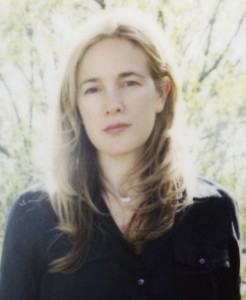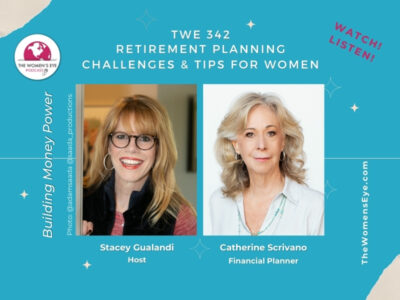
Journalist, author, and editor Vendela Vida has recently published the third in a trilogy of books that have a theme of violence and rage. In The Lovers she chronicles an American widow’s quest to heal herself.
Described as a “masterful meditation on grief and love,” the book is the tale of a woman who returns to the place in Turkey where she once honeymooned and the internal and external chaos that visit causes.

Vendela is a co-founder of the literary magazine The Believer. She’s also the co-founder of 826 Valencia, a non-profit tutoring center in San Francisco that teaches writing to children and teens.
I saw Vendela speak about her new book at Book Passage bookstore and wanted to know more about this new novel and her desire to write…
THE WOMEN’S EYE: When did you know you wanted to be a writer?
VENDELA: I knew I wanted to be a writer when I was in college, but I was very concerned about how I would make a career out of it. Throughout the process of writing my first book, Girls on the Verge, I had many jobs: waitress, researcher, editorial assistant, copy-editor. I didn’t end up fully supporting myself as a writer until my second book, And Now You Can Go.
EYE: In The Lovers your character Yvonne at 53 is coming to grips with the death of her husband. Can you talk about the research that went into developing her and how interviewing women at that painful 2 year mark helped you find her voice.
VENDELA: When I talked to women who had lost their husbands, they all singled out the 2-year mark as the time when things became incredibly difficult for them. They said that’s when it really sunk in that they were now “alone.” But the 2-year mark was also the time when their friends thought they should have gotten over their husband’s deaths, that they should be dating again and moving on with their lives.
What I noticed in talking to these women was how numb they felt at the 2-year mark, and I tried to incorporate that numbness into Yvonne’s outlook on the world. A lot of the information that readers are given in the novel isn’t even fully processed by Yvonne. For example, there’s a scene in which she receives a note from a student informing her she’s delivered the same exact lecture, word-for-word, to her class twice in the same week. Yvonne doesn’t even feel that shocked by this revelation, but my goal was to let the reader know how she appeared to others.
EYE: You told me that you really enjoyed writing about this woman Yvonne. What fascinated you so?
VENDELA: I really loved creating a character that wasn’t based on anyone I knew. I also knew when I was creating her that I wanted to direct a lot of love toward her, and make her a character that readers would (I hope) care about, even if, and especially if, she doesn’t have everything figured out.
EYE: How do you manage to write with such a full life (2 children, The Believer, etc.). I’m sure women would like to hear about how you fit it all in.
VENDELA: You know, I’ve been telling people it’s not so hard, that anyone can fit in two hours a day to write, even if it’s when the kids are asleep. And I believe that. But lately I’ve been wondering if I’ve been saying that it’s not so hard because that’s the answer I feel, in some ways, that I’m supposed to give. (We women can do everything! Careers, babies, throw it at us and we can do it!)
But if I’m being completely honest, which I’ve decided to be from this point forward, it’s pretty damn challenging. I rely on a lot of people to help me–my husband, my babysitter, and sometimes, still, even though I’m 38, my parents. They sometimes watch the kids when i have to go out of town to do research.
Another thing that helps free up time is not having internet or TV at home. That was a conscious choice–to not have internet–and I can’t count the hours I’ve been granted by its absence.
EYE: Can you tell me about The Believer and how it came to be…it’s such an interesting magazine.
VENDELA: Thank you. There were three of us who started it in 2003–the writers Heidi Jullavits, Ed Park, and myself. We were all in graduate school at Columbia together in the early-mid nineties, and I think, after we left the realm of school we missed the constant conversations about literature.
Starting The Believer was a way to continue to have conversations–both with each other, and with our writers and readers–about books old and new, and about artists and thinkers in another disciplines.
Thanks, Vendela!
For more information:
San Francisco Chronicle Review
Question: Do you know any widows that have experienced the difficult two year mark that Vendela describes?



Leave a Reply